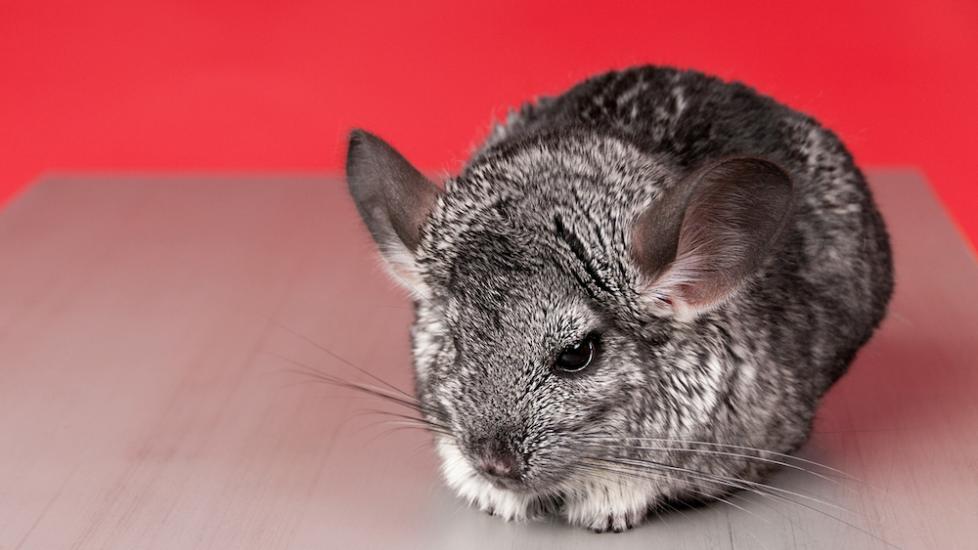How Long Do Chinchillas Live?
It may come as a surprise to discover that although hamsters, guinea pigs, and many other small rodent pets live only a few years, chinchillas can live a long and full life.
Chinchillas are native to the harsh Andes Mountains of South America and are very rugged animals. Domesticated chinchillas have been bred to be about twice the size of wild chinchillas, but have retained their quiet, shy personality. In the 1920s, eleven chinchillas were imported into the United States, and it is thought that almost every pet chinchilla in the US is directly related to one of these animals.
Average Chinchilla Lifespan and Aging
In the wild, chinchillas live on average about six years, while our pets in captivity live much longer—often surviving 10–15 years. The oldest chinchilla on record was over 29 years old. The likely reason for this difference in longevity includes safety; our pet chinchillas are not eaten by predators as they age and slow down, and medical care is available to our pets as they age.
Most chinchillas will age in a similar fashion to cats and dogs. They start out life as kits and nurse on their mother for six to eight weeks. They mature into pediatric animals, then young adults by about 8 months—when they can breed—and finally to adulthood. With time and luck, they eventually become senior chinchilla citizens. Different health needs are associated with each of these stages of life and maximizing the care available to your pet chinchilla at all stages helps to ensure they live long, healthy lives.
The oldest chinchilla on record was over 29 years old.
What Makes Some Chinchillas Live Longer Than Others?
In many cases, the care we provide our chins makes the biggest difference. Chinchillas have very specific environmental and nutritional needs. Pet parents can maximize their lifespan when we are able to meet these needs.
Other chinchillas develop injuries or illnesses. Chinchillas, like most rodents, are very adept at hiding signs of medical problems; so close attention is needed to find and address an issue during the early stages. When in doubt, it is best to have a chinchilla-knowledgeable veterinarian check your furry friend out. Not all veterinarians are experienced in chinchilla medicine, so be sure to find a veterinarian who takes exotic pets.
Some chinchillas are just “poor doers,” meaning they just aren’t as healthy or well developed as others and are prone to developing problems such as dental disease, heart disease, or gastrointestinal problems. Often, these little guys don’t survive as long as their sturdier relatives.
How To Improve Your Chinchilla’s Lifespan
There are many things that can be done to keep chinchillas healthy for as long as possible.
Chinchilla Nutrition
Perhaps the single most important factor is the chinchilla diet. Chinchillas are herbivores, meaning they can only eat vegetable matter. In the wild, they exist on grasses, leaves, and other roughage in their environment. All too commonly, pet chins are fed pelleted diets and sweet “treats” marketed for chinchillas. These types of food commonly lead to health problems.
Chinchillas should be fed low calcium grass hays, such as:
Alfalfa hay should only be fed occasionally, if at all, as a treat. If timothy-based chinchilla pellets are fed, they should be limited to no more than a tablespoon per day. Apple sticks can be offered as chew treats.
If additional treats are offered, they should be limited to very small amounts of green vegetables or fresh fruits. Never feed your chinchilla nuts, seeds, or dehydrated fruits. Chinchilla teeth continue to grow throughout their lives and the high fiber roughage associated with the steady diet of hay and grass helps to keep these teeth properly worn.
Chinchilla Exercise and Enrichment
Make sure you keep your chinchilla safe and well exercised. Chinchillas are remarkably active animals, and in the wild, they scramble to high vantage points to survey their territory. They also explore the world using their mouth. They will continue to exhibit these behaviors in your house, as well. Your chinchilla may try to climb up onto furniture or even onto your counters, so setting up a safe play area is important.
Chinchillas will also often chew items such as electrical cords as well as woodwork in the house—protecting both your belongings and your chinchilla is critical. Large cages are necessary for chinchillas; this is a “safe zone” for when you can’t supervise your pet. Chinchilla enclosures should have a sleeping area, a place to hide, an “exercise room” with a running wheel, and racks for hanging hay. Chinchillas are social animals, so most people keep more than one. Remember to increase the cage size if you choose to have multiple animals. In addition to a large cage, chinchillas need time out of the cage every day to exercise, explore, and stay mentally stimulated.
Chinchilla Healthcare
Lastly, plan ahead. Chinchillas require regular health care and having a chinchilla-knowledgeable veterinarian is important. Be sure to find a vet who specializes in exotic pets, even prior to adopting your chin. This will ensure you have medical help nearby. As soon as you get your new chinchilla, schedule a “new pet” visit to get established and to start on the right foot. This way, you will also be prepared if your furred friend develops a health problem and needs to be seen right away.
Chinchillas are friendly and intelligent animals which, with proper care, can live as long as the family cat! Keep these steps in mind to make the most of the time with your chin friend.
Featured Image: iStock.com/Jovanka_Novakovic
References
Riggs, Shannon. Mitchell, Mark. Chinchillas. Manual of Exotic Pet Practice. 2009.
San Diego Zoo Wildlife Alliance – Animals & Plants. Chinchilla.
